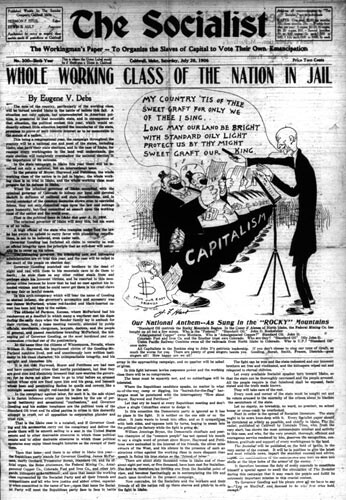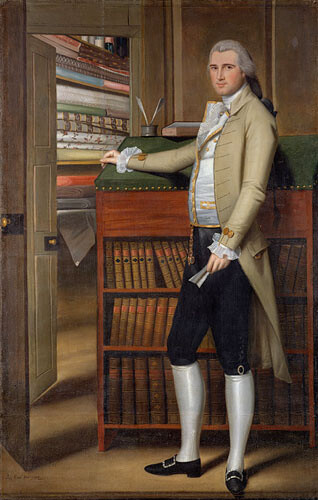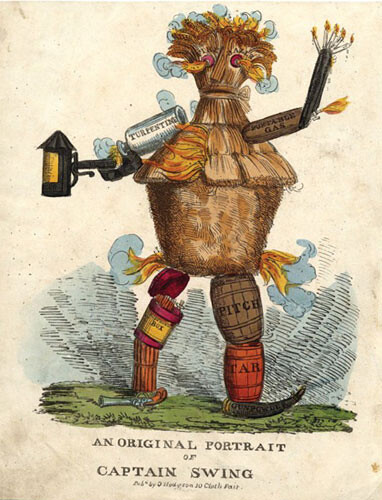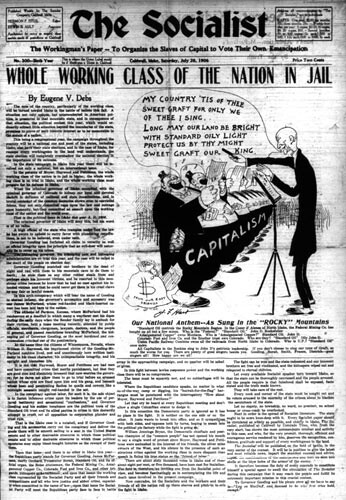The first thing I did was make a mistake. I thought I had understood capitalism, but what I had done was assume an attitude—melancholy sadness—toward it. This attitude is not correct. Fortunately your letter came, at that instant. “Dear Rupert, I love you every day. You are the world, which is life. I love you I adore you I am crazy about you. Love, Marta.” Reading between the lines, I understood your critique of my attitude toward capitalism.
—Donald Barthelme, “The Rise of Capitalism”
Today, the concept of “capitalism” enjoys a hegemony rarely achieved in the history of ideas. On the intellectual Left, it has remained the preferred partner of new formulations for more than a century: finance capitalism, monopoly capitalism, state capitalism, bureaucratic capitalism, organized capitalism, spectacular capitalism, late capitalism, cognitive capitalism, democratic capitalism. On the Right, after decades of rhetorical ambivalence, capitalism has at last secured a position as the public face of reaction: something belonging simultaneously to the past and to the future, it is to be both protected and pursued. Each of these visions has its own history.
Recently, the meaning of the term has been revisited by two of our best political economists: Fred Block, in his article “Varieties of What? Should We Still Be Using the Concept of Capitalism?”; and Wolfgang Streeck, in his book Re-Forming Capitalism.1
Both reconsider the place of capitalism in contemporary social science, both rely heavily on the work of Karl Polyani,2 both are on the Left, and both understand the term “capitalism” to be in some sort of crisis. Laid side by side, their analyses are remarkably similar, except on one point: Block believes the term “capitalism” should be jettisoned while Streeck believes it should be elevated.
This strange situation—where two established thinkers reach opposite conclusions by way of the same argument—is the inciting incident, not the subject, of the following investigation: a partial typology of what “capitalism” has signified and continues to signify. That this signification has shifted will come as a surprise to no one. More interesting are the ways in which these varieties of capitalism cluster into genres—a term I borrow from literary analysis in order to highlight the differences in style, form, and content that distinguish these different approaches.


This allows the placement, for example, of the writings of Moishe Postone, distinguished critical theorist of Chicago, and those of Guy Debord, consummate low theorist, in the same genre of capitalism—that of abstractionism—even though their theories are profoundly different. What these and other generic examples share is a horizon of expectation about what capitalism is and what it can be seen to do, where, with whom, and how. A genre is born when certain structural elements begin to carry inherent meaning or weight in and of themselves.3
Broadly speaking, my claim is that the discourse of “capitalism” includes several different elemental sets, and it is these different sets that I am calling, for the time being, genres.


Capitalism as Spiritualism
Maurice Dobb begins his Studies in the Development of Capitalism from 1946 with a series of considerations not unlike my own. How is it, he asks, that a term as seemingly central as “capitalism” can have so many different meanings? Citing thinkers who dismiss it for this reason—his example is Tawney’s Religion and the Rise of Capitalism from 1937—Dobb notes that the definition of capitalism rooted in the contrast between state control and laissez-faire is unusually narrow. If this definition were understood strictly, he claims, it would mean limiting capitalism to the United States and Britain. Instead, he argues, three broader accounts stand out:
While in some respects [these definitions] overlap, each of them is associated with a distinctive view of the nature of historical development; each involves the drawing of rather different time frontiers to the system; and each results in a different causal story of the origins of capitalism and the growth of the modern world.4
Things are no longer so simple. It is not clear that the five genres of capitalism I will explore here and in Part II of this essay propose distinctive views of the nature of historical development, or provide different causal narratives, though they probably imply such differences. Instead, each genre prefers some differences over others, and this preference, too, shifts with the terrain. Thus the only explicit difference between the productivist and commercialist genres I discuss below is their differing accounts of how capitalism emerged; yet there are further distinctions to be found in the location and focus of the analysis, even if it is stylistically and technically quite similar. Though it is somewhat beyond my scope here, I do believe “capitalism” can be helpfully understood as belonging to the twentieth century, though its etymological origins date from sometime earlier.
Eve Chiapello5 locates an early appearance of “capitalism” in an economic context in Louis Blanc’s Organization of Work, from 1851, where it distinguishes between capital and its private appropriation—that is, between capital and capitalism:
[The] sophism consists of perpetually confusing the usefulness of capital with what I shall call capitalism, in other words the appropriation of capital by some to the exclusion of others. Let everyone shout “Long live capital.” We shall applaud and our attack on capitalism, its deadly enemy, shall be all the stronger.6
Proudhon uses the term a little and Marx almost never, though Engels does so more frequently.7 The term is not properly disseminated until Werner Sombart’s Der Moderne Kapitalismus of 1902. Sombart credits the formulation to socialist writers: “The concept of capitalism and even more clearly the term itself may be traced primarily to the writings of socialist theoreticians. It has in fact remained one of the key concepts of socialism down to the present time.”8
It is here that the first genre of capitalism comes into focus: “socialism” predates it, as does “capital.” The Marxist genre of capitalism—as opposed to Marx’s theory of the capitalist mode of production—arrives in response to the Sombartian one, as we shall see. It is also important to note that “capitalism” arrives predicated—here as modern capitalism—and, as surely as the prices on a menu can be predicted by the number of adjectives attached to a dish, the sophistication of twentieth century political economic analysis can likewise be anticipated by the number of modifiers lined up before “capitalism.”
I call this first genre of capitalism spiritualism, because it casts capitalism as a kind of spirit. This means that all the defining aspects of capitalism—ideas, practices, sources—are modeled on spiritual or religious predecessors. As Dobb says: “Sombart has sought the essence of capitalism, not in any one aspect of its economic anatomy or its physiology, but in the totality of those aspects as represented in the geist or spirit that has inspired the life of a whole epoch.”9
Instead of understanding capitalism as constituting a shift in a specific kind of social or economic relationship—commercial, productive, or otherwise—Sombart emphasizes the preceding formation of the capitalist spirit: “At some point the capitalistic spirit must have been in existence—in embryo if you like—before any capitalist undertaking could become a reality.”10
This conception was taken up more influentially by Weber, who argued that capitalism is “present wherever the industrial provision for the needs of a human group is carried out by the method of enterprise”; thus the spirit of capitalism describes “that attitude which seeks profit rationally and systematically.”11
Weber is clear that capitalism represents the rational organization of production, but, for him, the force driving this shift toward rationality is Protestantism. Weber understood his claim in opposition to historical materialism, which, he argued, reduced Protestantism to a mere reflection, or symptom, rather than a cause of the shift in productive organization.
It is essential to note that the first generic use of “capitalism” is an effort to rescue the significance of spiritual life from its relegation to epiphenomenal status by socialists. This explains my term spiritualism, in that “capitalism” is born as a kind of spiritual historicism.12
The generic affinity between Weber and Sombart is further confirmed in their twinned explication of capitalism in terms of religious identity. Thus Weber costumes his rational, calculating, self-denying spirit as the Protestant Ethic, while Sombart sees capitalism best exemplified by another religion, as he detailed in The Jews in Economic Life. Here it was the Jews whose ascribed characteristics—calculating, bookish, nomadic—made them the “perfect stockyard speculator” and the embodiment of modern capitalism. To be clear, the spiritualists did not say that capitalism was, or is, a religion, but that it should be understood itself as a product of religious or spiritual practices, ideas, and relationships, even when these are not expressly understood as such. (This idea is also found in the work of later thinkers like Daniel Bell and David Brooks.)13 To restate: in place of the capitalist mode of production, we might say that Weber gives us the Protestant mode of production—called “capitalism”—while Sombart gives us the Jewish mode of production—also called “capitalism.” For spiritualists, the force organizing production is a kind of spirit.


Capitalism as Commercialism
The second genre, which I am calling commercialism, equates capitalism, in Dobb’s words, “with the organization of production for a distant market.”14
Associated with historical approaches, this genre has a tendency to identify capitalism with a monetary economy, and focuses on exchange relations rather than on relations of production, consumption, or distribution. Generic examples tend to seek “the origins of capitalism in the first encroachments of specifically commercial dealings upon the narrow economic horizons and the supposedly ‘natural economy’ of the medieval world.”15
In our own moment, this genre is exemplified by the followers of the historian of economic life Ferdinand Braudel, and writers such as Immanuel Wallerstein and Giovanni Arrighi, who give us capitalism as the logic governing the global commercial system of exchange.
With commercialism we arrive at our first self-identified Marxist genre of capitalism, the other being productivism, which I will consider next. Within the Marxist tradition, this distinction—between a focus on exchange or circulation and one on production—has long been acknowledged, and Arrighi presents it elegantly:
Marx invited us to “take leave for a time of [the] noisy sphere [of circulation], where everything takes place on the surface and in view of all men, and follow [the possessor of money and the possessor of labor-power] into the hidden abode of production” … Here, he promised, “[w]e shall at last force the secret of profit making.” Braudel also invited us to take leave for a time of the noisy and transparent sphere of the market economy, and follow the possessor of money into another hidden abode … but which is one “floor above, rather than one floor below” the marketplace. Here, the possessor of money meets the possessor, not of labor-power, but of political power. And here, promised Braudel, we shall force the secret of making those large and regular profits that has enabled capitalism to prosper and expand “endlessly” over the last five to six hundred years, before and after its ventures into the hidden abodes of production.16
Thus, the different “floors” correspond to the generic difference between productivist and commercialist capitalisms, though my claim is that perhaps they are best thought of as different houses. More importantly, in the same way that productivists occasionally rely on a category of normatively good, non-alienated work in contrast with the unfreedom of labor traded like a commodity, commercialists often come to valorize competition and “true” market relations as sources of freedom. In these accounts, capitalism is often juxtaposed against the market, as a sort of meta-realm of alienated exchange relations.17
Wallerstein’s commentary on Braudel’s concept of economic life is representative in this respect:
Here, then, is our picture. Economic life is regular, capitalism unusual. Economic life is a sphere where one knows in advance; capitalism is speculative. Economic life is transparent, capitalism shadowy or opaque. Economic life involves small profits, capitalism exceptional profits. Economic life is liberation, capitalism the jungle. Economic life is the automatic pricing of true supply and demand, capitalism the prices imposed by power and cunning. Economic life involves controlled competition; capitalism involves eliminating both control and competition. Economic life is the domain of ordinary people; capitalism is guaranteed by, incarnated in, the hegemonic power.18
Or, put otherwise, in commercialism, the division between emancipatory and oppressive aspects of exchange is the division between those which appear as relations and those which appear as forces.
An important shift from spiritualism to commercialism is the substitution of a system for a set of spiritually identified individuals, or specific kinds of agents, as the primary vehicle for capitalism. Thus the group of calculating, self-denying Protestants (or Jews, or entrepreneurs) becomes instead a process without a subject, a system, defined, in Braudel’s case, by ultimate flexibility:
Let me emphasize the quality that seems to me to be an essential feature of the general history of capitalism: its unlimited flexibility, its capacity for change and adaptation. If there is, as I believe, a certain unity in capitalism, from thirteenth century Italy to the present-day West, it is here above all that such unity must be located and observed.19
We see here, in a surprising contrast to the spiritualists—for whom capitalism is essentially a set of ideas held by people who then act on them accordingly—a certain mysticism in the definition of capitalism as a trans-historical unity marked by unlimited flexibility and capacity for change. Still, neither genre is particularly helpful in demarcating the historical borders of the concept they’re considering. As Dobb argues:
[The] conception of the capitalistic spirit and a conception of Capitalism as primarily a commercial system share the same defect, in common with conceptions which focus attention on the fact of acquisitive investment of money, that they are insufficiently restrictive to confine the term to any one epoch of history, and that they seem to lead inexorably to the conclusion that nearly all periods of history have been capitalist, at least to some degree.20
There is, in other words, a generic affinity between commercialism and spiritualism at the level of setting: works in this genre can take place in many different historical time periods. There is an additional affinity as well—namely in both genres’ location of the rational aspect of exchange at the center of their accounting. This speeds the triumph of the marginal utility theory of value, which arrives as an effort to theoretically model exchange at a social scientific level, while, for productivists like Dobb, the labor theory is to be preferred as an attempt to model production:
At least since Jevons and the Austrians, [economic theory] has increasingly been cast in terms of properties that are common to any type of exchange society: and the central economic laws have been formulated at this level of abstraction … At the level of the market all things that are available to be exchanged, including the labor-power of the proletarians, appear as similar entities, since abstraction has been made of almost every other quality except that of being an object of exchange.21
Thus, though Marxist commercialist varieties are particularly clear examples of the genre, they are not the only ones. Most, if not all, of reactionary thought, from Robert Nozick to Niall Ferguson, relies, too, on the presumed freedom and rationality of exchange. Many other kinds of literature also approach capitalism, if less explicitly, in terms of trade and exchange relations, or through the lens of commerce—and here we might mention the vast variety of “soft” or “romantic” anticapitalisms that simply secularize the old, religious suspicion of money itself, the hatred of commerce qua commerce. An example from everyday life: a wine tasting designed to encourage attendees to sign up for membership in a CSA ends with the proprietors—themselves the wine makers!—clumsily apologizing for “being capitalist” in asking for people’s support. Nothing so confirms the dominance of a commercialist understanding of capitalism in the popular imagination. Today, asking to be paid for the products of one’s work is enough to be considered a capitalist. It was not always so. Thus, although I am examining what I take to be some of the clearest theoretical articulations of these different genres of “capitalism,” my claim is that most uses of the term—popular, scholarly, or otherwise—are of one of these five kinds.


Capitalism as Productivism
The productivist genre perceives capitalism as concerned fundamentally with the forces and relations of production. Most famously, it understands capitalism as the concentration of the means of production in the hands of the few. Dobb again: “Men of capital, however acquisitive, are not enough: their capital must be used to yoke labor to the creation of surplus value in production.”22
Unlike commercialism, which locates the origins of capitalism in the beginnings of international trade, productivism finds it in the dispossession of peasants of their land in the enclosure movement. Dobb himself belongs to this genre, as does, more recently, Robert Brenner, whose devotion to production, here appearing as industry, is front and center in the postscript to his recent The Boom and the Bubble:
A lasting decline in the rate of profit in the international manufacturing sector caused by the persistence of over-capacity and over-production, has been, and continues to be, fundamentally responsible for reduced profitability and slow-growth on a system-wide scale over the long term.23
For productivists, then, capitalism is less the domination of the commodity as such, still less the triumph of the market, than it is the appearance of a specific kind of commodity (the labor commodity), or a specific kind of market (the labor market). But the genre would include much more than just historical or social scientific investigations so oriented, and would encompass any approach to capitalism, positive or negative, that positioned work and production, rather than consumption, calculation, or exchange, at the center of the story. The murals of Diego Rivera, in this respect, are a shining example of productivism.
Productivism is the second major genre often noted for declaring its fidelity to Marx, and though I have little interest in intervening in the debate between productivists and commercialists, there is one aspect of the confrontation that is pertinent. The argument, again, is about whether capitalism has its origins in the forces and relations of circulation, or if it begins with those of production. In short, both genres are right as concerns their origins in Marx. In fact, the only reason that they have a conflict at all is because of their additional fidelity to the term “capitalism,” which Marx didn’t much use.
In Marx’s analysis, the migration of forms of circulation into the productive sphere is what creates the “capitalist mode of production.” Certainly, the productivists are correct that the key transformation, for Marx, takes place within production, but the content of this transformation, and its model, originates in circulation. It is when labor (a relation of production) is treated like a commodity (a relation of circulation) that we have the capitalist mode of production. Marx’s phrase maintains the analytic division between production and circulation by specifying the relationship between the two: it is the “capitalist mode of production,” and not, for example, the “proletarian mode of circulation,” or the “monetary mode of distribution.”
The difficulty only arrives with the term “capitalism,” which covers over this distinction, and thus could be understood to refer equally well to circulation (which furnishes the process of capital), or production (which furnishes the protagonist of labor), or neither, or both. The abbreviation “capitalism” not only opened the door to many decades of fighting between productivists and commercialists; it also gave a relatively limited description of one aspect of the political economy (a mode of production) a much more epic, totalizing sweep.
Fred Block, “Varieties of What? Should We Still Be Using the Concept of Capitalism?” in Political Power and Social Theory, vol. 23, ed. Julian Go (Bingley, UK: Emerald Books, 2012), 269–291; Wolfgang Streeck, Re-Forming Capitalism: Institutional Change in the German Political Economy (Oxford: Oxford University Press, 2009).
Two of Polanyi’s concepts feature prominently in both Block and Streeck: the “double movement,” wherein the market evades regulation (first movement) and is then regulated anew (second movement); and the social “embeddedness” of institutions.
The classic work here is Hans Robert Jauss, Toward an Aesthetic of Reception, trans. Timothy Bahti (Minneapolis: University of Minnesota Press, 1982).
Maurice Dobb, Studies in the Development of Capitalism, rev. ed. (New York: International Publishers, 1981), 4.
Eve Chiapello, “Accounting and the birth of the notion of Capitalism,” Critical Perspectives on Accounting 18 (2007): 263–296.
Blanc quoted in E. Deschepper, L’histoire du mot capital et de ses derives (Brussels: Philologie Romane, Faculté de Philosophie et Lettres, Université Libre de Bruxelles, mémoire de recherche, 1964), quoted in Chiapello, ibid.
According to the OED, the word first appears in English to describe the concentration of power in Buenos Aires, the capital city of Argentina, before showing up in reference to economics in the 1830s.
Werner Sombart, “Capitalism,” in Encyclopedia of the Social Sciences, eds. E. R. Seligman and A. Johnson (New York: Macmillan , 1930), 195–208.
Ibid, 5.
Sombart, Quintessence Of Capitalism (New York: Howard Fertig, 1967), 25, quoted in Dobb, Studies in the Development of Capitalism.
Max Weber, General Economic History, 275, and The Protestant Ethic and the Spirit of Capitalism, 64. Both quoted in Dobb, 5.
Not religious history, because, as Weber was keen to point out, the spirit of capitalism is not equivalent to Protestant doctrine but is instead a product of the effect of those ideas on economic organization. Sombart, for his part, argued that commerce in the Middle Ages was inspired by the spirit of handiwork rather than the spirit of capitalism.
I am thinking of Bell’s Cultural Contradictions of Capitalism and David Brooks’s Bobos in Paradise.
Dobb, Studies in the Development of Capitalism, 6.
Ibid, 7.
Giovanni Arrighi, The Long Twentieth Century (New York: Verso, 1994), 26.
We see the same logic at work throughout Peter Swenson’s work, as is evident from the title of his Capitalists Against Markets.
Immanuel Wallerstein, “Braudel on Capitalism, or Everything Upside Down,” The Journal of Modern History, vol. 63, no. 2, A Special Issue on Modern France (June 1991): 354–361.
Ferdinand Braudel, The Wheels of Commerce, Civilization and Capitalism, 15th–18th Century (New York: Harper & Row, 1982), 433.
Dobb, Studies in the Development of Capitalism, 8.
Ibid, 27.
Ibid., 7.
Robert Brenner, The Boom and the Bubble (New York: Verso, 2008), 285.
Continued in “Genres of Capitalism, Part II”

